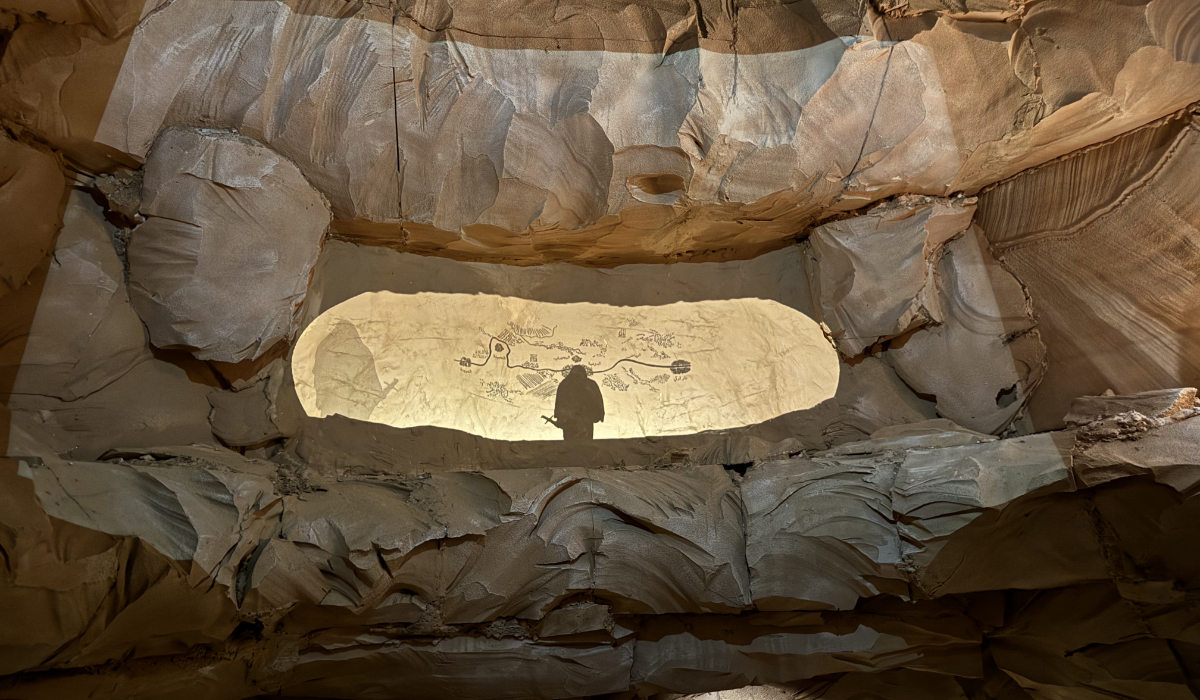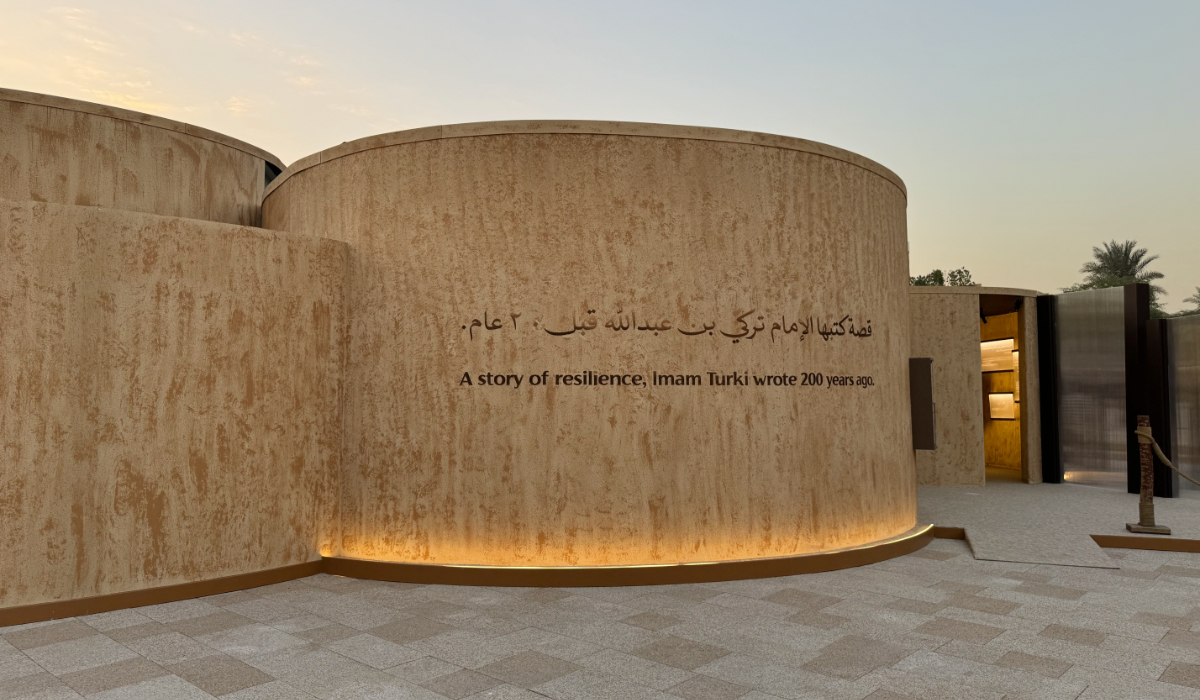JEDDAH: In a speech on Nov. 12, Crown Prince Mohammed bin Salman announced that the proportion of Saudi Arabia’s protected areas and nature reserves has increased from 4 percent in 2016 to about 14 percent today. The crown prince’s address to the Shoura Council touched on the issue of conservation, the projects that the Kingdom was implementing for environmental protection and the role of the new dedicated unit, the Special Forces for Environmental Security (SFES).
The SFES currently has 1,100 employees, but this number will grow to 10,000 in the course of the next four years to enable it to protect the environment, wildlife and biodiversity across the Kingdom and to enforce laws and regulations in conservation areas.
In an exclusive interview with Arab News, SFES Commander Brig. Gen. Saher bin Muhammad Al-Harbi confirmed that the force was already operating in several natural reserves. He made it clear that the SFES’s role is not limited to protecting wildlife and biodiversity, but goes beyond that. It penalizes activities that harm the environment such as illegal poaching and logging; prevents air, water and soil pollution; and prevents activities that could harm the natural ecosystems of mountainous, land and coastal areas.
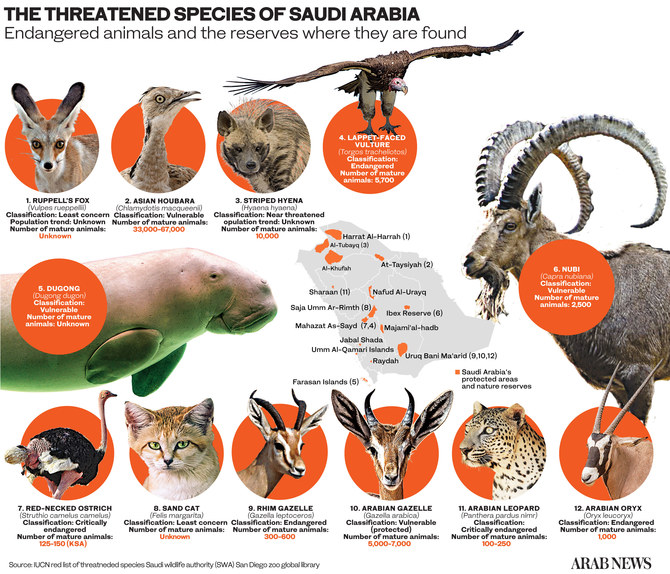
Q: How many nature reserves fall within the ambit of the SFES?
A: The SFES has been entrusted with the protection of several natural reserves. They are Imam Saud bin Abdul Aziz Royal Reserve, Imam Turki bin Abdullah Royal Reserve, King Abdul Aziz Royal Reserve, King Khalid Royal Reserve, King Salman Royal Reserve and Prince Mohammed bin Salman Royal Reserve. The SFES uses modern technologies and advanced techniques for control, protection and monitoring of the areas where it is operating.
Q. How is the SFES working to achieve the objective aimed at improving the quality of life, a key objective of the Kingdom’s 2030 Vision strategy?
A. Environmental safety is one of the indicators of sustainable development and an important element of the quality of life as stipulated in the Kingdom’s 2030 Vision. It will contribute to the enforcement of environmental regulations in the Kingdom in order to reduce the pressure of violations that ecological systems are facing, restore their balance, achieve their sustainability and contribute to the improvement of quality of life and establishment of a society where all its members benefit from healthy lifestyles and surroundings that allow them to live in a positive, attractive environment.
The SFES was established to take on comprehensive tasks and responsibilities and enforce environmental regulations in all the protected regions across the Kingdom. Its duties include environmental security monitoring; environmental security investigation; detaining and arresting offenders; seizing objects used for committing offenses and issuing violation tickets; referring violators to competent authorities; and providing security back-up and support.
Its duties also cover receiving and following up on complaints, taking part in environmental emergencies, and participating in environmental awareness-raising efforts in cooperation with relevant bodies. The force also contributes to the development of policies, strategies and plans related to environmental enforcement, again in partnership with the relevant bodies.
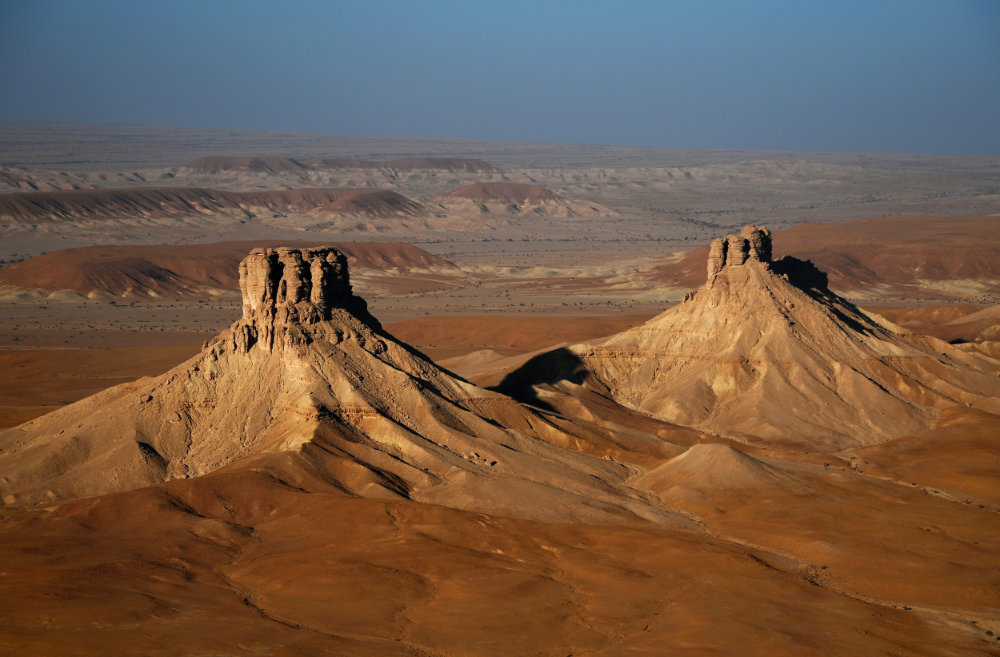
The SFES' function includes preventing activities that alter topographical features in conservation areas. (Supplied)
Q. Do you have a role in protecting conservation areas from activities such as alteration of topographical features, leveling of mountains or arbitrary dredging of sand for use in construction?
A. The SFES works for the protection of conservation areas against all harmful influences such as illegal poaching and logging; air, water and soil pollution; and activities that could harm the ecosystems of mountainous, land and coastal areas.
It also works to prevent any tampering with the vegetation in Makkah and Madinah regions, limit the spread of such activities, and enforce regulations against violators, while also cooperating with Public Security and other relevant bodies that have jurisdiction over these areas, to prevent their occurrence.

The SFES’s role is not limited to protecting wildlife and biodiversity but goes beyond that. (Supplied)
Q. The Kingdom’s land area is vast, with diverse terrain that is home to many species. How do you intend to cover a country of this size?
A. As part of its deployment plan, the SFES intends to focus on those parts of the country that hold special significance from an environmental standpoint. It will make use of the latest modern equipment and advanced technologies to cover the vast land area that falls within its scope, including regions that have rough terrain. The SFES cooperates with other security and environmental bodies and benefits from their support in doing its job.
The SFES has responsibility for all the environmentally significant areas of the Kingdom. They include royal reserves, forests, grasslands, parks, coastal stretches, bird sanctuaries, urban areas, suburbs, industrial zones, water resources, roads and their surrounding areas, land-border areas and marine protected areas.
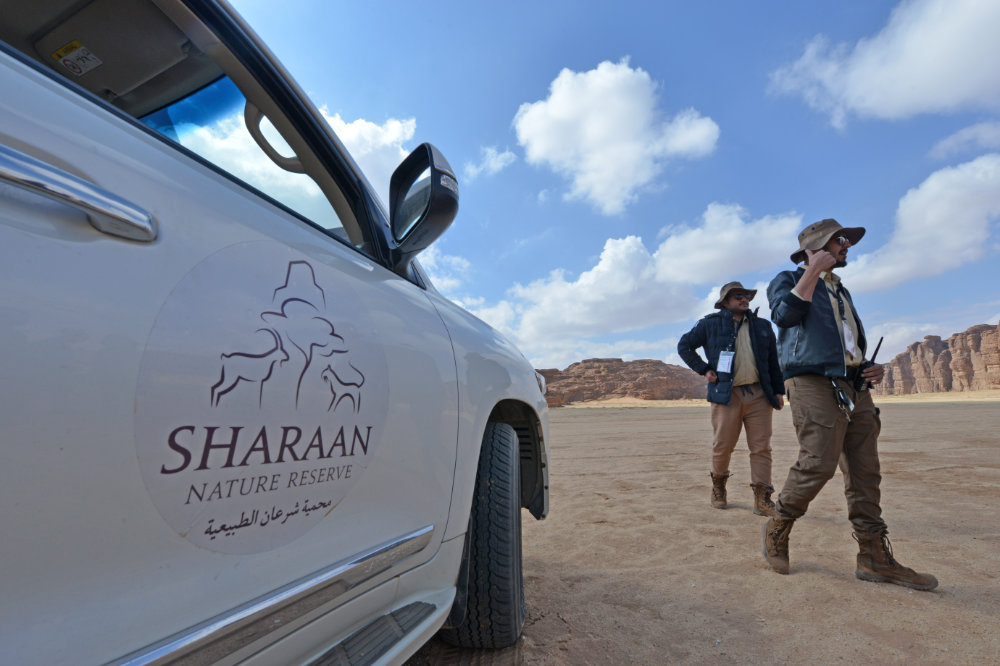
In addition to the SFES, allied groups are also watching over nature reserves such as the Sharaan Nature Reserve near the town of al-Ula in northwestern province of Tabuk (Photo by Fayez Nureldine / AFP)
This means that it covers a geographical area of almost 800,000 square kilometers across the Kingdom through a main center located in Riyadh, six headquarters in the regions and 21 departments in cities and provinces, encompassing all the environmentally significant regions.
Work will also be initiated to establish additional departments in the provinces in a way that ensures that all the environmentally significant regions of the Kingdom are covered. The forces will be deployed geographically in stages over a period of four years.
Q. Poaching, which has led to the extinction to many wildlife species, is a problem in the Kingdom. What are you doing to bring it under control?
A. In its areas of operations, the SFES monitors all hunting activities and areas of importance for birds, arrests poachers, issues violation tickets against them and refers them to the competent authorities for the remaining procedures to be completed. We have noticed a significant decrease in hunting in the areas where the SFES has a presence. Wild animals and birds will hopefully find safe havens, leading to the recovery and flourishing of the Kingdom’s wildlife.
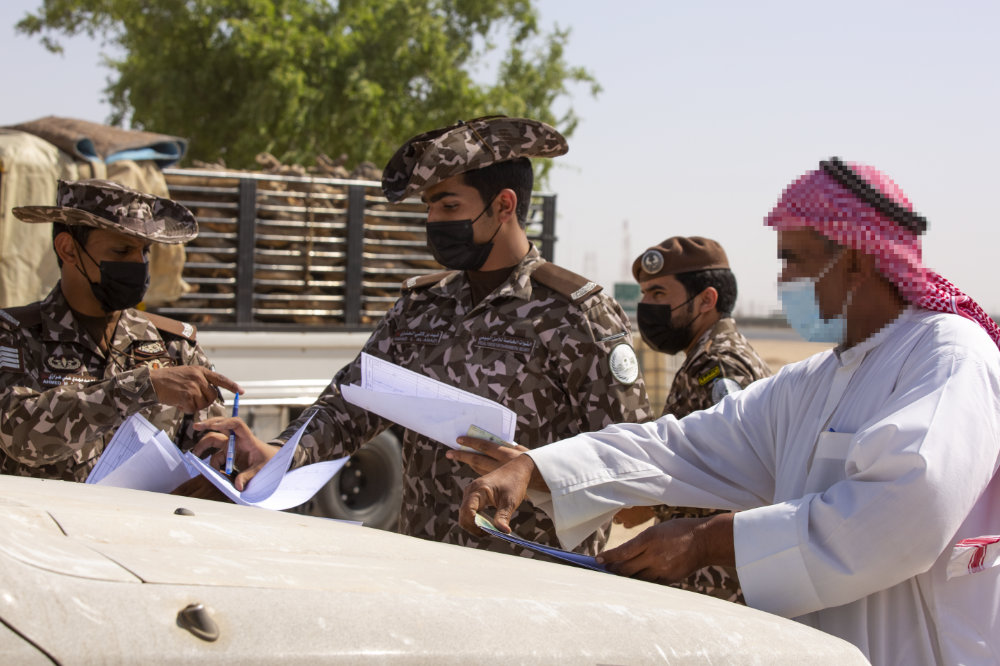
SFES patrols routinely check the cargo of passing motorists to ensure against violations of the Kingdom's environmental laws. (Supplied)
Q. What are the penalties for hunting with firearms? Will new environmental security violation regulations be issued?
A. Those who hunt without a license using any method are arrested and referred to the competent authorities to be meted out punishment in accordance with the relevant regulations, keeping in mind that hunting with firearms is prohibited in any situation.
As for poaching penalties, they consist of a fine of up to SR 50,000 ($13,333) or imprisonment for a period of up to 30 days, along with the confiscation of any vehicles or equipment used to commit the violation.
Regarding protection of wildlife, there exist regulations and penalties for violations, and new regulations will be issued in the near future in accordance with the environmental protection regime stipulated in Royal Decree no. m/165.
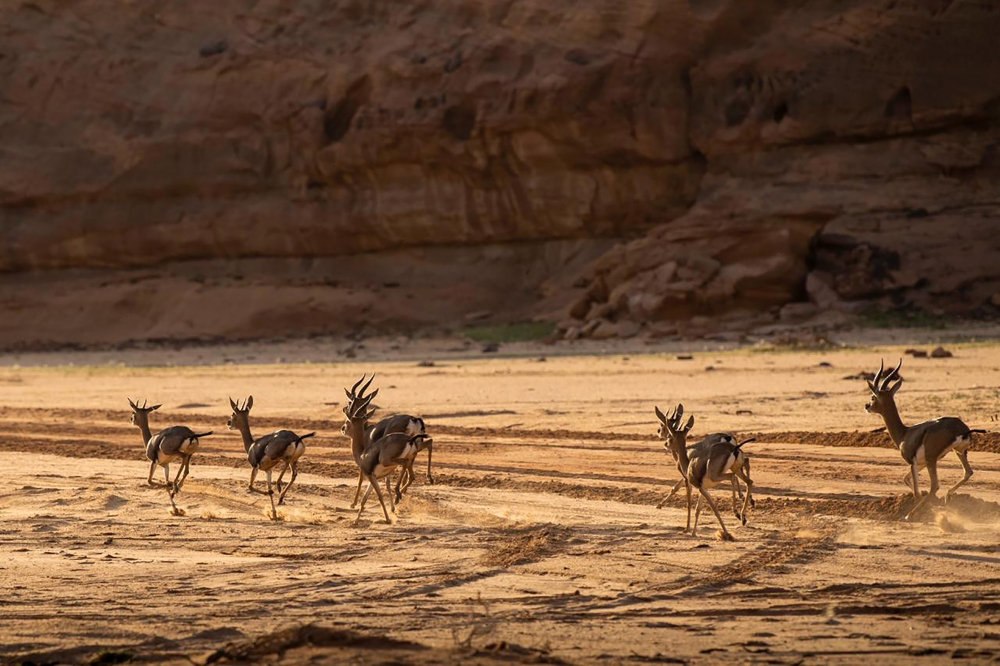
Hunting of certain wildlife may be allowed during specific seasons but the use of firearms is forbidden. (Supplied)
Q. There are specific hunting seasons, but what are they? How will you prevent hunting beyond these seasons?
A. The specific hunting seasons are identified by the relevant authorities of the Ministry of Environment, Water and Agriculture, while licenses are issued to those interested in hunting activities in accordance with the regulations.
The Ministry of Environment, Water and Agriculture, represented by the National Center for Wildlife Development, recently announced that hunting will be allowed between Nov. 1, 2020, and Jan. 15, 2021. It will be permitted subject to clear controls and regulations as announced by the ministry, which cover the species that can be hunted, the equipment that can be used, and the areas where hunting can happen.
The SFES will be in charge of arresting all those who violate the regulations. All forms of hunting are prohibited outside these seasons. The SFES will enforce regulations in its areas of operations through environmental security monitoring and investigation.
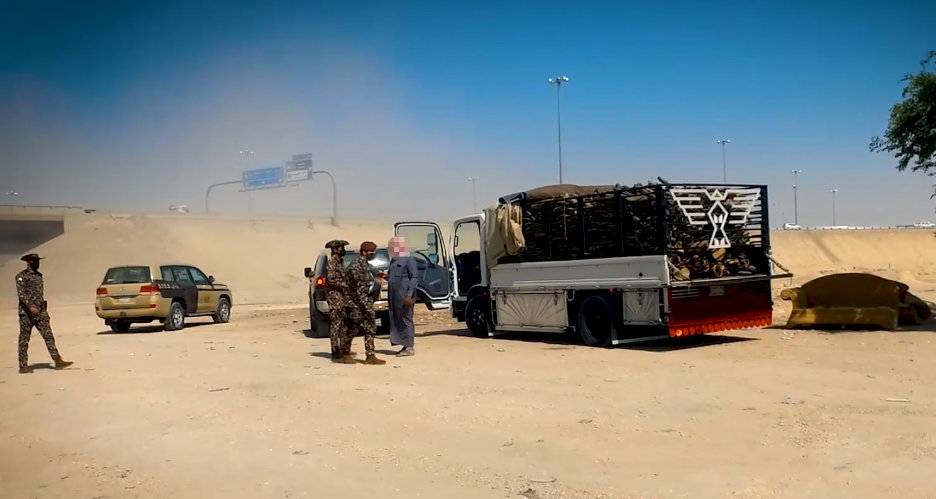
Part of the SFES' responsibility is to fight illegal logging across the Kingdom. (Supplied)
Q. Environmental awareness is of vital importance. What are your most plans for advancing this objective?
A. Taking part in environmental awareness-raising campaigns in cooperation with the relevant authorities is one of the most important tasks of the SFES.
It uses its media division and communication channels to increase awareness and to educate society on the importance of environmental conservation, community involvement through cooperation with the relevant public and private sectors; and participation in local and international events that promote environmental protection.
We believe that citizens and residents are partners when it comes to raising environmental awareness.
The SFES has developed programs to encourage community participation by partnering with civil society institutions and environmental associations and reaching out to the largest number of people possible. The SFES is also keen to take part in local and international festivals, exhibitions, conferences and activities related to environment and environmental security.
_________________
Twitter: @md_sulami














